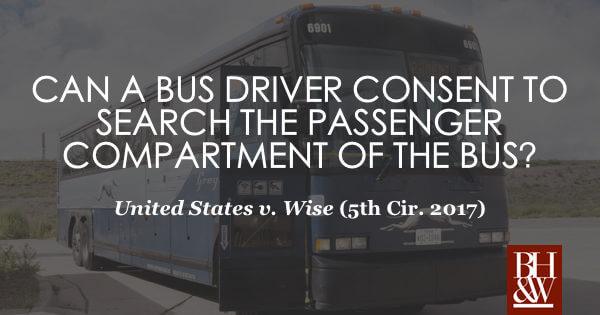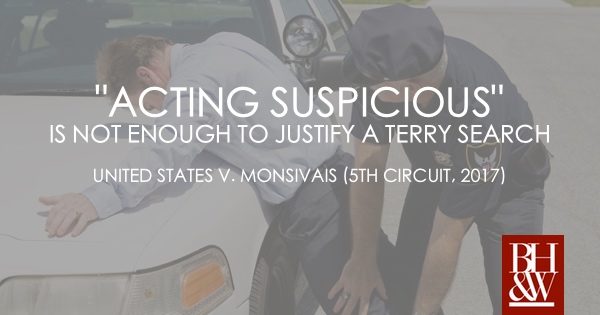United States Supreme Court | Search and Seizure Update
 We expect that police officers know the law. After all, they are charged with upholding the law. But what happens when an officer makes a traffic stop based on an incorrect understanding of the law and then finds evidence of another crime during his improper stop? The Supreme Court recently considered this scenario in the case outlined below:
We expect that police officers know the law. After all, they are charged with upholding the law. But what happens when an officer makes a traffic stop based on an incorrect understanding of the law and then finds evidence of another crime during his improper stop? The Supreme Court recently considered this scenario in the case outlined below:
In Heien v. North Carolina, a North Carolina police officer stopped a man for driving with one broken brake light. The driver later gave consent to the officer to search his vehicle. The officer discovered cocaine charged the driver with trafficking cocaine. The driver argued that the officer made a mistake of law for stopping him on one faulty brake light and not two (which is what NC law requires) therefore evidence should be suppressed. The NC vehicle code makes clear that the officer was mistaken when making the traffic stop.
The Supreme Court granted cert to review the case and the question of whether an officer who makes a mistake of law still gives rise to reasonable suspicion. They Court ruled that the officer’s mistake of law was objectively reasonable and that ultimately, the Officer had reasonable suspicion to conduct the traffic stop. In so holding, Chief Justice Roberts wrote “The Fourth Amendment requires government officials to act reasonably, not perfectly, and gives those officials ‘fair leeway for enforcing the law.'”
While not dealing with specific state law in Texas, the ruling in this case did address reasonable suspicion as it relates to unreasonable searches prohibited by the 4th Amendment. Article 38.23 of the Texas Code of Criminal Procedure states:
No evidence obtained by an officer or other person in violation of any provisions of the Constitution or laws of the State of Texas, or of the Constitution or laws of the United States of America, shall be admitted in evidence against the accused on the trial of any criminal case.
While Article 38.23 of the Texas Code of Criminal Procedure provides an exception if an officer is acting in objective good faith reliance on a warrant, it does not give a reasonable suspicion exception to conduct a search. Clearly, the Heien opinion will be cited by the State to support searches even when the initial stop is conducted illegally. We will just have to wait and see how our Texas Courts will react in light of Heien v. North Carolina.










